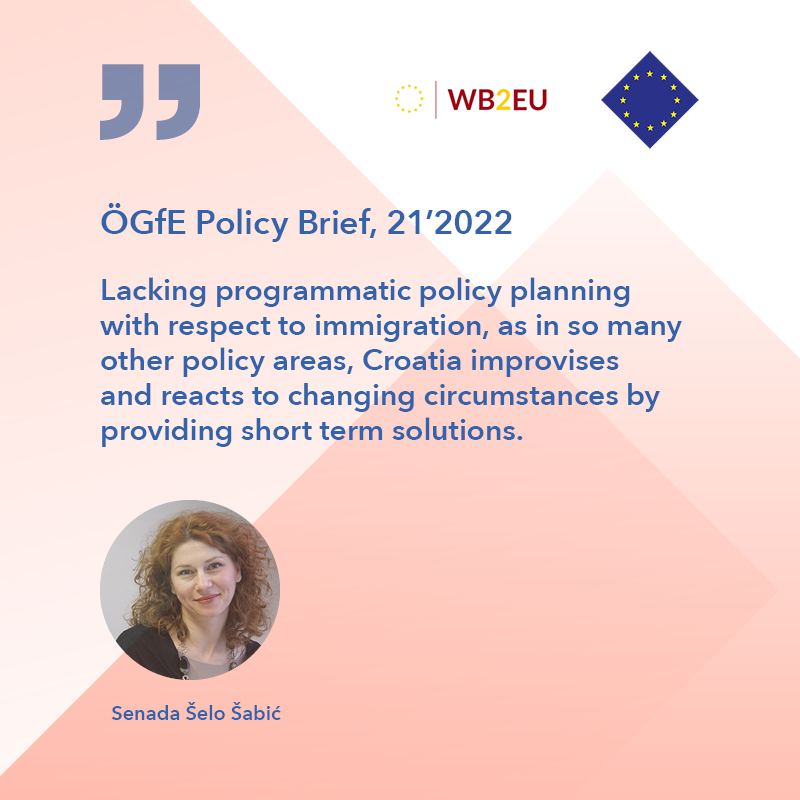Demographic decline of Croatia: What is to be done? Senada Šelo Šabić, ÖGfE Policy Brief, 21’2022
Over the last three decades, Croatia has been steadily losing its population. The 2021 national census results show that Croatia has a population of 3,871,833 million people, 413,056 less than in 2011. Demographic decline is partly a result of wartime human losses in the 1990s, but ever since it has been steered by a combination of factors including decreasing birth rates, increasing emigration and limited immigration. Since Croatia joined the European Union in 2013, emigration of mostly young and educated hit new record highs. The government’s policy solutions have not reversed negative demographic trends. Is it time that Croatia designs a progressive and comprehensive immigration policy?
Policy Recommendations
- Assess the demographic challenge in a multi-stakeholder perspective and design policies that reflect political, economic and social complexity of the issue. Earlier policy solutions should be analysed critically and fairly.
- Strengthen the rule of law. Strong democratic institutions with entrenched rule of law and legal certainty positively impact investments and economic development which, in return, incentivise people to remain, those who left to return, and new ones to come. Designing policies aimed at increasing birth rates without tackling broader negative political and economic trends, in particular corruption, will not reverse demographic decline.
- Reflect on positive aspects of people’s mobility and on best practices elsewhere.
- Show positive examples of immigration in Croatia and successful stories of integration. Discuss challenges of integration both for the local population and immigrants. Deconstruct fear.

The Policy Brief is published in the framework of the WB2EU project. The project aims at the establishment of a network of renowned think-tanks, do-tanks, universities, higher education institutes and policy centres from the Western Balkans, neighbouring countries and EU member states that will be most decisive for the enlargement process and Europeanisation of the region in the upcoming years. The WB2EU project is co-funded by the European Commission under its Erasmus+ Jean Monnet programme. The European Commission support for the production of this publication does not constitute an endorsement of the contents which reflects the views only of the authors, and the Commission cannot be held responsible for any use which may be made of the information contained therein.


